The 28th Meeting of the events COP28 will be held in Dubai, United Arab Emirates (UAE), and about thirty people from the School of Worldwide Policy and Strategy and Scripps Institution of Oceanography at UC San Diego are expected to attend.
This two-week United Nations (UN) environment conference, which is slated to take place from November 30 to December 12, 2023, offers a forum for world leaders, politicians, experts, and other stakeholders to participate in conversations on the approaching climate crisis. In light of the fact that several climate records have been broken this year, the main goal of this event is to discuss ways to mitigate the effects of climate change and prepare for the coming years.
The University of California observer delegation includes the UC San Diego cohort, which is made up of staff, faculty, and students. It works in tandem with associates from other UC campuses.
Through dedicated pavilions, individuals and organizations can host events, present research, and promote conversations outside the formal discussions and UN-organized side events.
Notably, Scripps Oceanography, Woods Hole Oceanographic Institution, and 35 eminent international ocean organizations will arrange the Ocean Pavilion for the second year in a row within the conference’s allocated meeting space, dubbed the “Blue Zone.” Global leaders in ocean science, engineering, policy, and generosity come together at the Ocean Pavilion, which highlights the ocean’s vital role in providing answers to the climate disaster.
Margaret Leinen, the vice chancellor for marine sciences at UC and head of Scripps Oceanography, emphasized the importance of the ocean in the climate system and voiced concern about the stress that climate change is putting on it. Leinen clarified, “The Ocean Pavilion’s objectives are to draw attention to the ocean’s critical role in climate change and to work together to develop science-based strategies to lessen its consequences. I’m excited to watch the UC San Diego delegation represent our planet and advocate for better awareness and conservation on a worldwide scale.”
In addition to engaging in panel discussions and side events, the UC San Diego delegates will network, share knowledge, and explore practical solutions to the climate crisis. They will also assist with staffing the COP28 exhibit for the UC-wide educational climate program “Bending the Curve”.
We look into the desires, aspirations, and insights that the UC San delegation’s learners and instructors hope to collect during this important international conference as we speak with them. Continue reading to learn more about the delegates to COP28 and their goals.
Wael Al-Delaimy, UC San Diego Professor of Public Health

Public health professor Wael Al-Delaimy, MD, PhD, lectures at UC San Diego Herman Wertheim School of Health Sciences and Human Longevity Science. The diverse chronic disease researcher works with populations at risk locally and worldwide. The environment, mental health, and research ethics are Dr. Al-Delaimy’s passions. Four essential administration climate change, community health education for employees, and academic ethics initiatives are under his control. He oversees a California American Indian tobacco control research program. Dr. Al-Delaimy directs the NIH’s newly funded Global Centre on Weather Change and Water, Energy, Food, and Health Systems. He supervises the GeoHealth Hub on Climate and Health in the Middle East and North Africa. He works worldwide on climate change capacity building, health policy, and water and climate factors’ public health implications.
Sofia Alli, Scripps MAS MBC Student
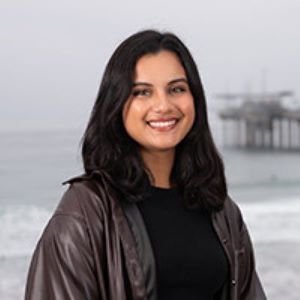
MAS MBC student Sofia Alli has an appetite for Latin American marine politics and preservation. Her excitement is witnessing the worldwide Objective of Resilience debate, especially in developing nations where climate change awareness is rising. Alli is eagerly awaiting world leaders’ ocean conservation proposals. She said, “I enjoy having world leaders discussing ocean conservation policies.
Bruce Appelgate Scripps Oceanography

Bruce Appelgate maintains managerial oversight for the operation of the Scripps fleet of academic vessels and the academic capabilities onboard them. At COP28, Appelgate will be talking about a new California coastal hybrid-hydrogen experimental vessel now in construction. The vessel is being constructed with a hydrogen-hybrid propulsion system that will enable it to operate with zero-emission capability, a first-of-its-kind system in the maritime sector. Construction of this and succeeding emissions-free vessels is vital to the University of California’s Carbon Neutrality Initiative, with the objective of being zero-carbon by 2025.
Austin Barnes, Scripps PhD Student

Scripps Geography Ph.D. student Austin Barnes from Hawai’i interacts with Mark Merrifield in the Coast Mechanisms Group. Barnes studies coastal consequences of increasing sea levels in practical oceanography. As the relative rise in sea levels grows in American Samoa, his latest research analyses how neighboring corals will filter waves. He analyses wave runup and coastal freshwater consequences of damaged and fed beaches. Barnes desires to collaborate with young climate change advocates. He expects to understand how his actions might promote this movement. Barnes is concerned about how COP talks address new dangers to Pacific Island nations’ traditional ways of life personally and professionally.
Katrina Cantu, Scripps PhD Candidate

Katrina Cantu, a Ph.D. student in the earth sciences in the Human Ecology Lab, examines how sea levels, climate, and human interference affect coastal environments, especially wetlands. Her sediment core collection and analysis are significant. In Israel, Greece, and Puerto Rico, Cantu collected sediment cores and engaged in terrestrial and underwater archaeological research. At COP28, Cantu hopes to meet with global sustainability advocates. She wants to comprehend government climate change actions and teach people who are not scientists about earth systems.
Grace Cawley, Scripps PhD Student

Grace Cawley investigates gelatin plankton and marine pyrosomes for her PhD. Cawley studies how these species interact in the intricate marine life web. Climate change affects benthic communities, which she investigates. Cawley is excited to attend COP28 to study regulations, see international negotiations, investigate country campaigns, tour shelters and discuss ocean species as climate change indicators.
Mitchell Chandler, Scripps PhD Candidate
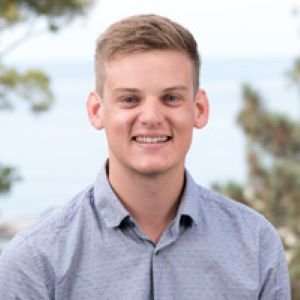
Mitchell Chandler, the Ph.D. candidate in theoretical oceanography with advisors Nathalie Zilberman and Janet Sprintall, uses Argo, Deep Argo, satellite, and hydrographic survey measurements. He studies upper-ocean as well as western boundary currents. Chandler studies western boundary current variability and marine temperatures. Chandler wants to network at COP28 to apply his ocean and climate research beyond academia. He wants to cooperate with island delegates, especially in New Zealand, where oceanic movements may affect weather and climate.
Tom Corringham, Scripps Research Economist
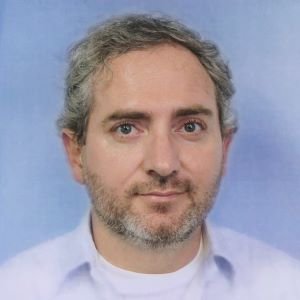
Tom Corringham, a Scripps Oceanography researcher and economist, examines climate change and extreme weather’s financial consequences. He expects environmental river prices to rise in the 21st century and other areas. Flood risk, environmental justice, the economic impact of atmospheric rivers on road transport networks, and climate action plan appraisal using the processing of natural languages are all his interests. Scripps’ Centre for Western Weather and Water Extremes (CW3E), CNAP, SWCASC, and the UC Supercomputer Center’s WIFIRE program are Corringham’s partners.
Natalia Erazo, Scripps PhD Candidate
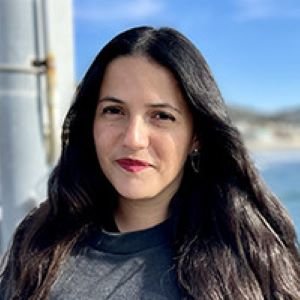
Ph.D. candidate Natalia Erazo studies coastal ecosystem microbial populations and anthropomorphic anxiety on ecosystem functioning in the Bowman Lab. Her study explores the mangrove microbiome and plant-microbial relationships to understand how bacteria protect plants from environmental stress and illnesses. Erazo’s women-led mangrove fishery enhances seafood sustainability and climate resilience. She investigates mangrove blue carbon and heads a community-based mangrove restoration initiative in Ecuador.
At COP28, Erazo emphasized climate finance and adaptation and mitigation funds. She monitors knowledge and technology transfer between developed and developing nations, emphasizing climate solution access and implementation equity. Erazo wants to work with climate justice experts, leaders, young visionaries, and community members.
The School of Global Policy and Strategy Master of Public Policy student Tamara Handfas
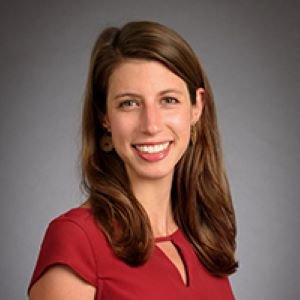
Tamara Handfas, a Master of Public Policy student specializing in environmental public policy, studies climate change in South America, notably deforestation and land use change. Her scholarly interests include worldwide and subnational (state and provincial) climate change cooperation. Handfas is excited to watch the lively international negotiations on one of our most critical, urgent, and complex challenges. Enjoying the conference’s wide diversity, she plans to visit country pavilions and join civil society side events.
Emily Kunselman, Scripps PhD Student

Marine biology doctoral candidate Emily Kunselman enthusiastically favors shellfish the aquaculture industry, combining industrial manufacturing and preservation of species. Her research studies how viruses affect oyster and abalone microbiomes, which may worsen diseases. These diseases are connected to hurricanes and high water temperatures.
Kunselman looks toward climate change-related discussions on sustainable aquaculture and the blue economy. She wants to meet climate change-solving students and academics.
Scripps Geography Professor Margaret Leinen

UC vice chancellor for marine sciences and Scripps Institution of Oceanography director Margaret Leinen is regarded. As an award-winning ocean biogeochemist and paleoceanographer, she studies ocean carbon cycling and how oceans shape global climate. Leinen’s presidency of the American Geophysical Union and Oceanography Society was influential. She chaired the US Global Change Research Program and was a State Department Science Envoy for the Ocean. Leinen is a critical member and co-chair of the Decade Advisory Board, giving her knowledge to the UN Decade of Ocean Science for Sustainable Development.
Lisa Levin, Scripps Distinguished Professor Emeritus

Lisa Levin, a pioneering biological oceanographer and Scripps professor emeritus, has always led vital studies. Her study has examined the intricate interaction between the surroundings and continental margin deep-sea communities. Levin’s important research shows how climate change affects vulnerable deep marine ecosystems, particularly ocean deoxygenation.
Levin leads coastal wetland ecology, larval linkage, and deep-sea ecosystem conservation and observation. DOSI, which links underwater science and policymakers, was co-founded and led by her. Levin co-created the Deep Ocean Observing Strategy (DOOS), a global endeavor to combine deep observing activities for science and society.
Taylor McKie, Scripps PhD Student
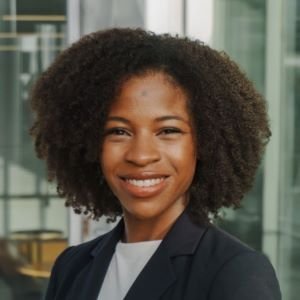
A dedicated sixth-year Ph.D. researcher at Scripps’ Multi-Scale Ocean Phenomena Lab (MOD), Taylor McKie studies ocean boundary-level phenomena in physical oceanography. Her research examines submesoscale dynamics in salinity-stratified waters, particularly the Indian Ocean, and climate change’s effects.
McKie hopes a career in environmental policy after graduation. Her goal is to promote prevention and climate resilience, especially in disadvantaged groups. McKie anticipates meeting domestic climate policy leaders at COP28. She wants to study national and global climate resilience solutions.
Austin Newcomer Master of Public Policy student

The environment Master of Public Policy candidate Austin Newcomer is a career Coast Guard officer with substantial expertise. Ocean policy is his research focus, showing his dedication to marine preservation. Newcomer aims to meet COP28 pioneers in maritime emissions monitoring and other sectors. Creating and enforcing pragmatic regulations in this field is his passion. Newcomer is fascinated by international deal-making and the conference’s global concessions and accords.
Courtney Ransom Public Policy Student
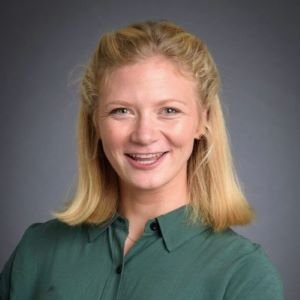
A Master of Public Policy student studying energy and sustainability policy, Courtney Ransom explores the intricate intersections of public policy and the dynamic human-environment relationship. Her research examines the complicated links between urban infrastructure, energy systems, and environmental solutions.
Ransom anticipated the important COP28 “final negotiation days.” Many policymakers will attend the first five-year global greenhouse gas emissions stocktake. Ransom is interested in conversations and policy responses since they will impact global climate change efforts.
Tammy Russell, Scripps PhD Student

Scripps Ph.D. student in biological oceanography Tammy Russell researches the western coast sea birds’ habitat preferences and changes in the climate. Russell wants to meet scientists, officials, and others at COP28. Her main purpose is to raise awareness of climate change’s widespread effects and mitigating needs.
Russell is dedicated to using science to mitigate and conserve. Her conference attendance will change her view of scientific research and policy implementation. She wants to fix climate change.
Phoebe Skok, Scripps MAS CSP Student
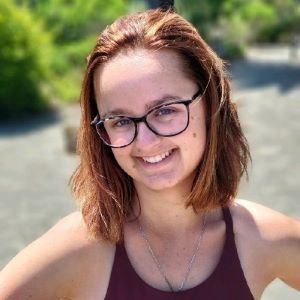
Redwood Climate Communications’ communications intern is Scripps graduate student Phoebe Skok, seeking a MAS CSP. Only climate tech and environmental groups use this communications strategy agency. Skok writes for UC Today and evaluates performance metrics as a communications assistant. A six-month high school study abroad program in Queensland, Australia, where they watched devastating bushfires, encouraged them to fight climate change.
Skok wants to examine global climate policymaking from experts. Their interest includes fossil fuel companies’ conference involvement as potential barriers to progress. Skok’s academic and practical approach to climate policy and sustainability displays his commitment.
Angela Solanilla Master of Public Policy Student

In her second year of GPS’s Masters of Public Policy, Angela Solanilla studies environmental policy. She investigates food security, the blue economy, energy, and land use for sustainable development. Solanilla dedicates herself to world challenges by studying these vital fields.
At COP28, Solanilla hopes to learn how climate change science affects politics. She wants to know about global climate change hot topics and figures. Attending this international event displays her dedication to research, policy, and global environmental challenges.
Lynne Talley Professor of Physical Oceanography

Scripps Climate, Atmospheric Sciences, and Physical Oceanography, as the division professor Lynne Talley is a famous oceanographer. Her research focuses on the ocean’s general circulation and how oceanic and atmospheric influences affect ocean currents, property distributions, and climate trends.
Talley was one of the first women to write a graduate-level physical oceanography textbook. Her leadership in the IPCC Fourth Assessment Report Working Group I chapter “Observations: Oceanic Climate Change and Sea Level,” which won participating scientists a share of the 2007 Nobel Peace Prize, was notable. Talley has been elected a fellow of the American Academy of Arts and Sciences (2003), the American Geophysical Union (2006), the American Meteorological Society (2008), the Oceanography Society (2010), and the American Association for the Advancement of Science (2017) for her outstanding contributions.
David Victor Scripps Oceanography Professor

The campus-wide Deep Decarbonization Initiative is led by UC San Diego School of Global Policy and Strategy professor David Victor, an innovation and public policy expert. This program seeks to understand the challenges of rapidly reducing global warming gas emissions. Victor is an adjunct professor at Scripps Oceanography’s Climate, Atmospheric Science, and Physical Oceanography research unit in addition to his UC San Diego position.
Victor taught energy and environmental law at Stanford Law School before joining UC San Diego. As a convening lead author for the Intergovernmental Panel on Climate Change, he is involved in several climate and energy policy efforts. In 2007, this UN-sanctioned organization with 195 members won the Nobel Peace Prize. Victor’s many contributions demonstrate his commitment to climate and energy innovation.
Kara Wiggin, Scripps PhD Candidate
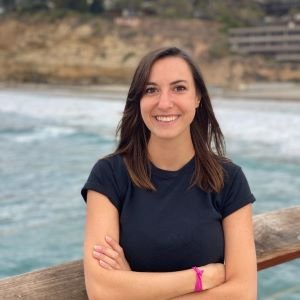
Kara Wiggin, a doctorate candidate studying plastic pollution and marine diseases, hopes to learn from delegates and observers at the upcoming gathering. Wiggin wants to learn more about ocean-related climate change by listening to outside voices. Since Scripps is a unique setting with up-to-date knowledge and forward-thinking, she believes hearing worldwide perspectives would enrich and refine her study themes.
